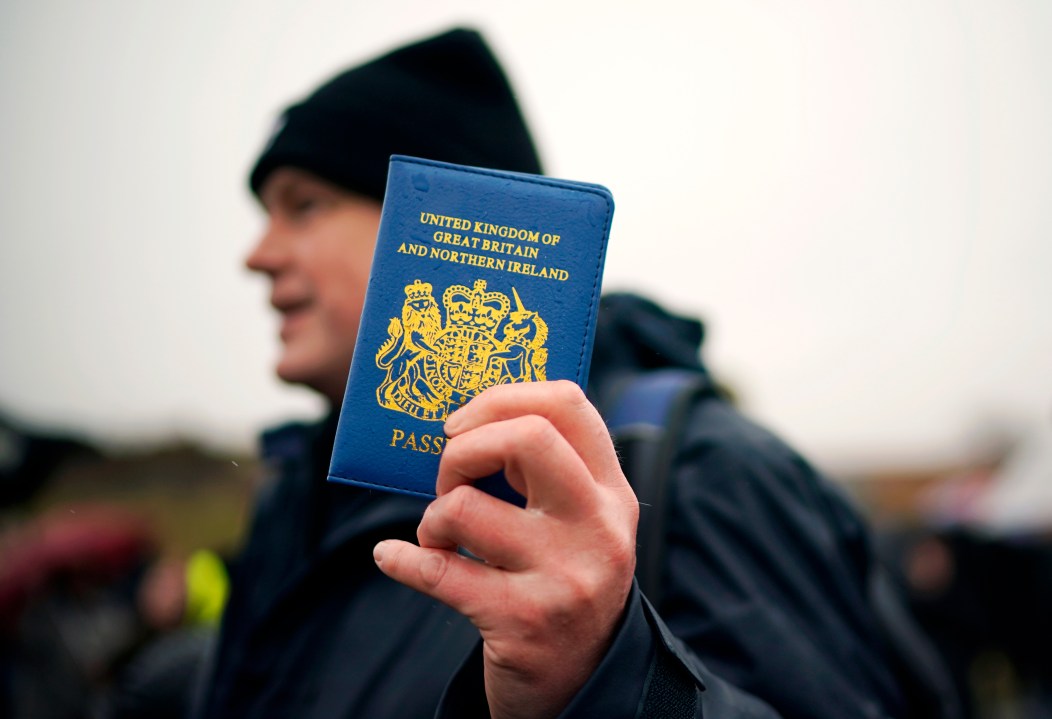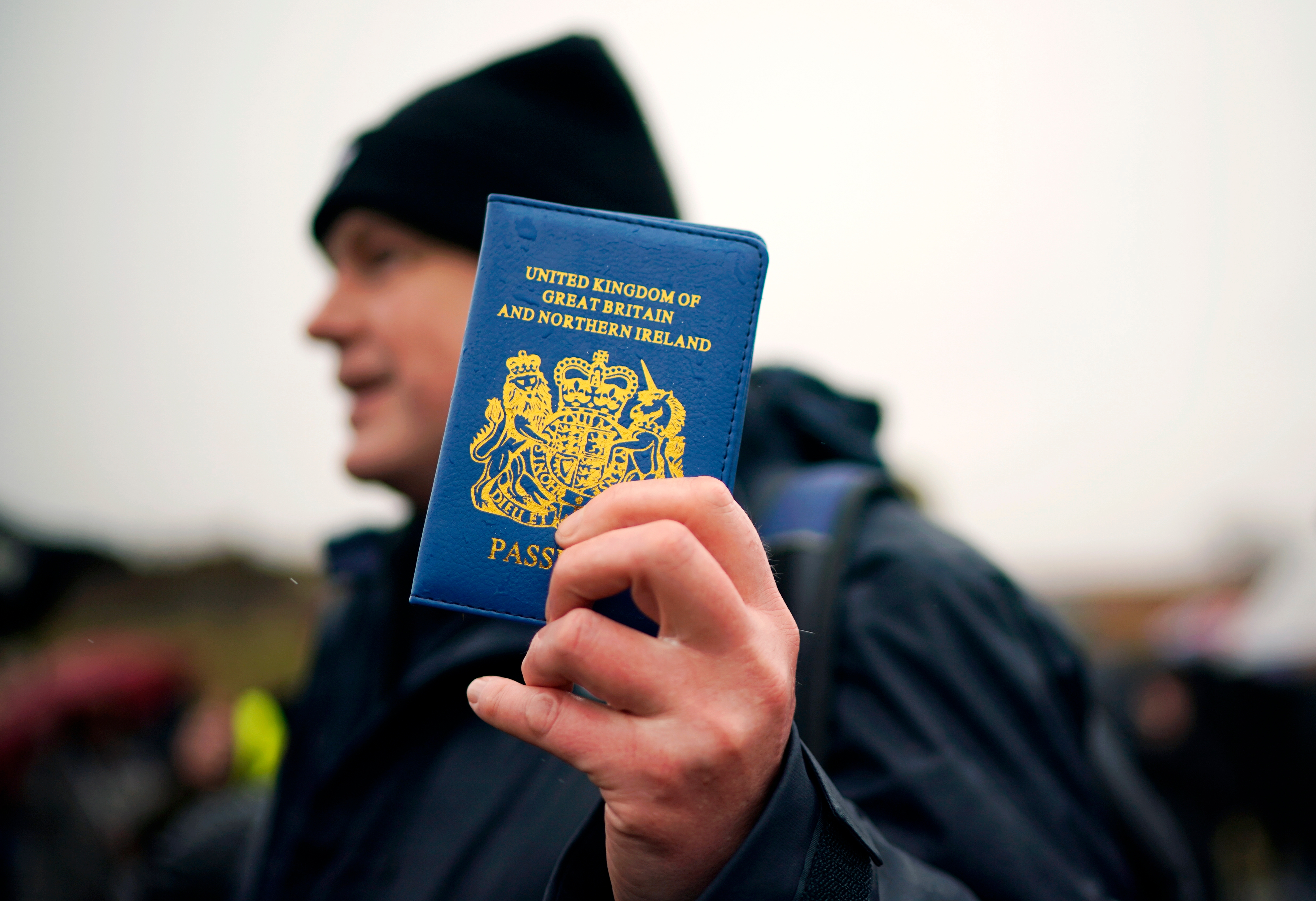In the great debate around Scottish independence, one word is never far away: identity. ‘Who am I?’ is elevated from mere navel-gazing to expressive political allegiance. On one side are those who feel that one can be both Scottish and British without fear of contradiction, while on the other are those who feel that one crushes the other. By casting off Britishness, one’s Scottishness could flower more fully, or so it is supposed.
Even so, it is something that, even in these times of performative politics, could remain between you, your God and your woad supplier. It certainly isn’t something to which an agency of the state would take much interest. Except that, if the Nationalists prevail, then at least three governments would be most interested in the legal expression of that identity – citizenship.
Let us assume that independence day is upon us and that somehow Scotland has been able to negotiate acceding to the EU without a decade in the wilderness. The time has come to decide who gets Scottish (and therefore EU) citizenship as a matter of right. Who passes the test?
The franchise for the independence referendum includes everyone legally resident in Scotland, regardless of nationality. It should surely be assumed that all of those people would be granted Scottish citizenship – if they weren’t, how could their votes be reasonably counted in the referendum? Such an expansive offer of citizenship would certainly fit with the SNP’s view of Scotland, even if it doesn’t chime with the view of most Scots.
They say that there are no atheists in a foxhole. Well, how many nationalists are there in a pension queue?
Next, would Scottish nationals resident elsewhere in the UK (such as myself and 750,000 others) be entitled to Scottish citizenship? We are currently denied a vote on whether we want it to exist at all, but it would surely be hard to refuse it. But would it be automatically conferred or would we have to apply? What about spouses and children? And what of the many millions of British people who could claim Scottish citizenship based on recent ancestry? Even a conservative estimate would put that number at many millions. Scotland could be the first state where a majority of its citizens were not actually resident in the country, a bizarre state of affairs for a new country to find itself in.
Also, what happens after that? Would the Scottish franchise remain limited to residency, or would it be like the UK (and most other countries) and allow ex-pat voting if the person had been abroad for less than a set period of time. Might I be unable to vote in the independence referendum, but immediately be able to vote in a subsequent Scottish general election for a party that would reverse the decision? And would I then be immediately disenfranchised again in a constitutional hokey-cokey?
So far, so confusing. Now, let’s look at it from the British side. It is not clear that the rest of the UK would permit dual citizenship as a matter of right — doubt has previously been cast on the matter (to the disdain, bewilderingly, of the SNP). Ireland provides some precedent, with all Irish citizens born before 1949 automatically being British subjects (which is why Terry Wogan could be knighted), but more recent examples, such as the dissolution of the Soviet Union, would require people to choose one or the other.
However, assuming that all Scots could apply for it, how many would? Based on current polling, if independence is attained just less than half of the population will have voted for the status quo. We might assume that the majority of them would take steps to remain British. But there will also be those who voted for independence who nonetheless feel that a British passport might be a rather useful thing to have, just in case. Might some people even spurn Scottish citizenship but remain as a UK ex-pat resident in Scotland?
For an example of why this matters, let’s look at a familiar issue. It is clear that pensions of Scottish citizens would be the responsibility of the Scottish Government, which might show a benefit in not being a Scottish citizen. The UK will obviously have retained sterling, one of the world’s reserve currencies, while Scotland would most likely be in the early days of a new currency for two reasons. First, with its twin fiscal and balance of payments deficits, Scotland would find sterlingisation a shortcut to national bankruptcy. Second, to join the EU necessitates having a floating currency and a central bank standing behind it. That currency would be likely to decline against sterling and also be much more volatile.
Meanwhile, the UK will probably persist with the ridiculous ‘triple lock’ steadily increasing pensioner income, while Scotland will be undergoing sado-austerity to bring its budget deficit down. Which would you prefer: a growing pension paid in a reserve currency or a shrinking pension in a volatile, depreciating currency? And so, when you have to choose a nationality, which do you pick? They say that there are no atheists in a foxhole. Well, how many nationalists are there in a pension queue?
Of course, continuing to stump up for Scots pensioners would be enormously unpopular in the rUK. It would also be unthinkable for the new cohort of ex-pats to have voting rights. Some measly form of reduced citizenship would doubtless be conjured into being just for those poor North Britons who want a memory of how things were.
But then we have to consider matters of residency. If someone were to rent a flat in Carlisle for a month before independence day, would they get full-fat or skimmed UK citizenship? If so, investors would be well advised to build thousands of studio flats just off the northern reaches of the M6. Realistically, independence would not occur for several years after the referendum. At what point would the decisions about who was where and when become carved in stone?
Furthermore, it would be foolish to suppose that Scotland would have absolute carte blanche to set its own criteria if becoming Scottish automatically entailed EU citizenship. Currently member states do have the right, but the European Commission recently launched action against Cyprus and Malta to prevent them from granting ‘investor citizenships’. How would the EU view the granting to millions of British citizens of freedom of movement in the EU without any reciprocity? And given that Scotland would have to be signed up to Schengen, will they demand that the sheep are separated from the goats at the border with England?
Given the fundamental importance of such matters, it would be nice to think that the Scottish Government would have some clear answers or at least some clear aspirations. Unfortunately, it seems that citizenship is destined to join the currency, the border, the constitution, the EU, NATO, and every other item of consequence in the ‘too hard, wait till after the referendum’ bucket. Still, at least we know what the flag will be.







Comments